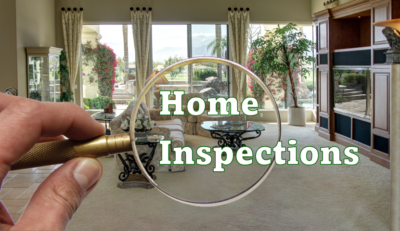

But one expense that buyers might be tempted to forego is the home inspection.
For most loans, an actual home inspection is not an item that your lender requires. So when you’re looking at all the additional closing costs, it may be tempting just to let it slide since inspections cost a few hundred dollars depending on the home’s size and features. PLUS, if there are multiple offer situations, a home inspection can drastically decrease the appeal of your offer.
Not having a home inspection can cost you big time in the long run.
Think of a home inspection, sort of like test driving a car that you’re considering buying. You would never buy a used car without driving it around for a minute, would you or taken into a mechanic? You want to make sure nothing is broken, smoking, or not properly functioning before you make that big purchase. Buying a home is no different; problems with a home aren’t always simple to spot with the naked, untrained eye.
That’s where your home inspector comes in. While there are limitations to a home inspector’s capabilities to spot trouble (such as the inspector isn’t going to pull up the carpet in every room to make sure the foundation isn’t cracked), there’s a lot that they can see that you would never think to look for. Inspectors will also suggest further inspections by respective professionals like a professional chimney sweep; a pool requires a pool professional and so on.
The type of home you’re purchasing makes a difference when figuring the inspection cost. A larger home will cost more to inspect than a small condo. Your home features may also require further inspections by vendors that an inspector will not have the expertise to inspect; however, there are specific items you will want a home inspector to pay strict attention to.
- Exterior: Includes drainage, driveway, patio, doors, windows, and steps. Siding (brick, stone, stucco, vinyl, wood, etc.) and trim should also be part of the inspection.
- Roofing: It helps the inspector know the roof’s age; however, an inspector will need to crawl up on the roof to make sure of the condition and notice anything not seen from the ground.
- Plumbing: This could also include any plumbing to the pool.
- Electrical: The electrical system needs to be safe. A thorough inspection could find work previously done on the system not up to code or today’s standards. An inspection also will show shoddy work.
- HVAC Systems
- Interior: This will show any plumbing leaks, insect damage, construction defects, and other issues not easily seen.
- Ceilings, Walls, and floors
- Steps, stairways, and railings
- Cabinets and Countertops
- Garage doors & garage door
- Ventilation/insulation
- Fireplaces: As mentioned previously, they should be inspected to make sure they were properly installed or if there are problems with the vent, flue or firebox. Many issues are unknown and unseen until inspected and could be a fire hazard.
List Source: American Society of Home Inspectors
Big problems spotted by your inspector during your due diligence period can save you thousands of dollars and prevent you from proceeding with the purchase of a majorly flawed home, an invaluable concept. While it may be tempting to save the money or let it slide to make yours the winning bid foregoing a home inspection is never a wise decision.
For more information, try the virtual home inspection at www.ASHI.org, the American Society of Home Inspectors Web site.
If you enjoyed this post, please become a fan on Facebook.
